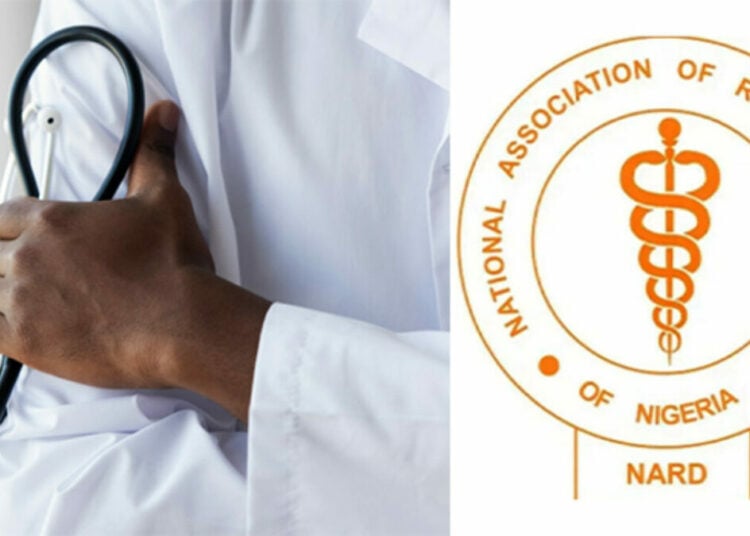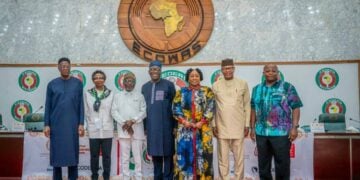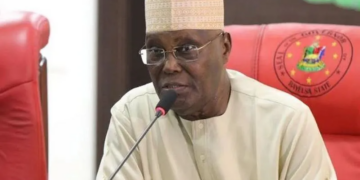The Nigerian Association of Resident Doctors (NARD) has commenced an indefinite nationwide strike effective 12:00 a.m. on Saturday, November 1, 2025.
The strike, which is expected to paralyze activities in government-owned hospitals across the country, followed the federal government’s alleged failure to meet a 19-point list of demands described by the association as its “minimum expectations.”
NARD President, Dr. Muhammad Suleiman, during a press briefing in Abuja, noted that the decision was reached after a five-hour emergency meeting of the association’s National Executive Council (NEC) last week.
He said the association had exercised restraint and patience despite repeated government’s inaction on critical welfare and payment issues affecting doctors and other healthcare workers.
“There are allowances pending for over two years, some for 18 months, seven months, four months, and even as far back as 10 years. The basic salary of doctors in this country has not been reviewed for 16 years,” he stated.
He added that the federal government owes medical personnel an estimated ₦38 billion in accumulated allowances and arrears, while several hospitals continued to operate under poor conditions due to lack of funding and inadequate staffing.
Among NARD’s key demands are: immediate payment of the outstanding 25–35% Consolidated Medical Salary Structure (CONMESS) arrears and the 2024 accoutrement allowance. Settlement of all pending financial entitlements owed to doctors and other health workers, and reinstatement of five resident doctors dismissed from the Federal Teaching Hospital, Lokoja, with full payment of their outstanding salaries and allowances.
Others include implementation of a humane working-hours policy in line with international best practices, greater autonomy for hospital chief executives to hire replacements under the one-for-one replacement policy, and payment of specialist allowances to all doctors and correction of entry-level placements.
The association also called for urgent completion of the Collective Bargaining Agreement Committee’s work on the overdue review of CONMESS and related allowances, enforcement of salary relativity between CONMESS and CONHESS, and implementation of agreed pension benefits for doctors.
Dr. Suleiman appealed to President Bola Tinubu to personally intervene to prevent a total collapse of the nation’s healthcare system.
“Mr. President, we appeal to you as the father of the nation, please intervene, listen to our plight, and help us resolve these lingering issues,” he said.
Over the years, NARD has embarked on several strikes to press for improved welfare, better remuneration, and conducive working conditions, actions that have often crippled healthcare services nationwide and left patients stranded.
LEADERSHIP reports that the Association of Resident Doctors under the Federal Capital Territory Administration (ARD-FCTA) has also declared an indefinite strike beginning the same day, citing unresolved welfare and administrative concerns specific to FCT hospitals.
In a letter dated October 30, 2025, and addressed to the FCT Minister, Nyesom Wike, the ARD-FCTA President, Dr. George Ebong, and General Secretary, Dr. Agbor Affiong, said members unanimously voted to join the national strike during an emergency congress meeting on October 29.
The association, however, emphasizsd that it would continue its own strike action even if NARD suspended or called off its national strike until all FCT-specific issues were resolved.
The ARD-FCTA’s demands include immediate payment of salary arrears for members employed since 2023, commencement of new recruitment before year-end, and release of the 2025 Medical Residency Training Fund (MRTF). Others include correction of salary irregularities, release of promotion timelines, and conversion of qualified members to consultant cadre within stipulated timelines.
With resident doctors forming the backbone of Nigeria’s public healthcare workforce, the strike is expected to cause widespread disruption in hospitals across the country, further straining an already fragile health system.





